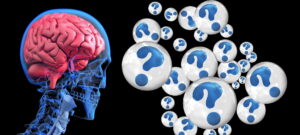by The Cowl Editor on September 16, 2021
Creative Non-Fiction

by Fiona Clarke ’23
I hesitate to claim outright that there are questions that are just bad (read: bizarre, intrusive, or just stupid) no matter the asker or of whom they are asked and no matter the time nor the place. Doctors, priests, and old people in general have a fair amount of elbow room in this area. So I’ll soften it just a bit. There are some questions that should not be asked of some people by some other people at some times in some places. An example of this would be: I am in the library (God forbid) and Bill Clinton comes up to me and asks: “How often do you floss?” Every single ingredient of this scenario clashes terribly with every other ingredient. Let’s break this down, shall we?
Person asking the question: Bill Clinton. That’s all. If he were to speak with the tongue of an angel, he would still be Bill Clinton. If he had the gift of prophecies and comprehended all mysteries and knowledge, and had faith to move all the mountains, he would still be Bill Clinton. Note: I am not suggesting that Bill Clinton is a lost cause. I submit only that he will forever remain inescapably Bill Clinton. Take that as you will. It’s a Bill wind blows nobody good…
Person being asked the question: Me. It’s not that I find the topic a sensitive one—no more sensitive than my gums, at any rate, or for that matter, my hips, for in response to the call of my inner dentist and dancer, I floss daily. I do prefer to keep personal details, and my teeth, where my mouth is, but outside the vinyl confines of the dental couch, this question would immediately make any reasonable person think that her choppers were about to be scavenged for a necklace.
Place in which the question is asked: I am never at my best in the library. I feel spiritually desolated, psychologically confused, physically cold and clammy, and emotionally plain old cranky. When I am in the library, even if I am not in the pit, I am in the pits.
There are also some questions that can and should be asked of some people by some other people, but that are equally important to be asked of some people by themselves—the unexamined life makes Jack a dull boy. These are the questions that you can’t answer without bottoming out on a mental speed bump. If you hit that speed bump, you’d better tuck that question under your arm when you get out of the 22 car and give it a real good going-over.
For my part, the question “Where are you from?” is one of these. It can most commonly be translated as “Where is your legal residence?” to which I can currently reply, with gritted teeth, “Massachusetts.” But the way I hear it, the question “Where are you from?” has an existential ring to it, and I’m not sure how to translate it. As of this writing, the closest I can get is somewhere between “Where is your home?” and “What’s your place of origin?” I’m reminded of a bit in Wallace Stegner’s novel Big Rock Candy Mountain. I don’t have the book on hand and so can’t quote it verbatim, but in this bit the guy Bruce contemplates something along these lines: If home’s not the place you hang your hat, and it’s not the place you were born, and it’s not the place your parents are from, nor where your family lives, then where on earth is it? And, if “Where are you from?” translates to “What’s your place of origin?” then how can one’s origin change? You can’t have more than one origin, so how can it be Mississippi one year and Michigan the next?
Like Bruce, I have little connection to my own birthplace, or to my parents’ birthplace, or to the place where my family lives. What connection there is actually my connection to my family. What I’m thinking of here is a PLACE of origin, the WHERE that I am actually from. Maybe there isn’t such a place, geographically speaking, or maybe this isn’t really an existential question, the age-old “Where am I from and where am I going?” After all, it’s not about where you’re from, it’s where you’re going, right? Wrong. How can you get anywhere without knowing your own starting point? Wait—maybe it’s not about the destination, maybe it’s just about the journey.
Wrong. A journey has a destination, or it’s just wandering, loafing around in the cosmos like it’s a Walmart. I may not be sure where I’m from or where I’m going, but I’m definitely not going to Walmart.